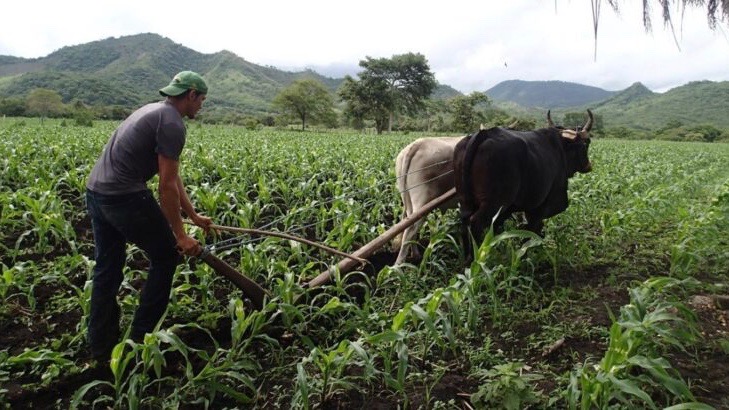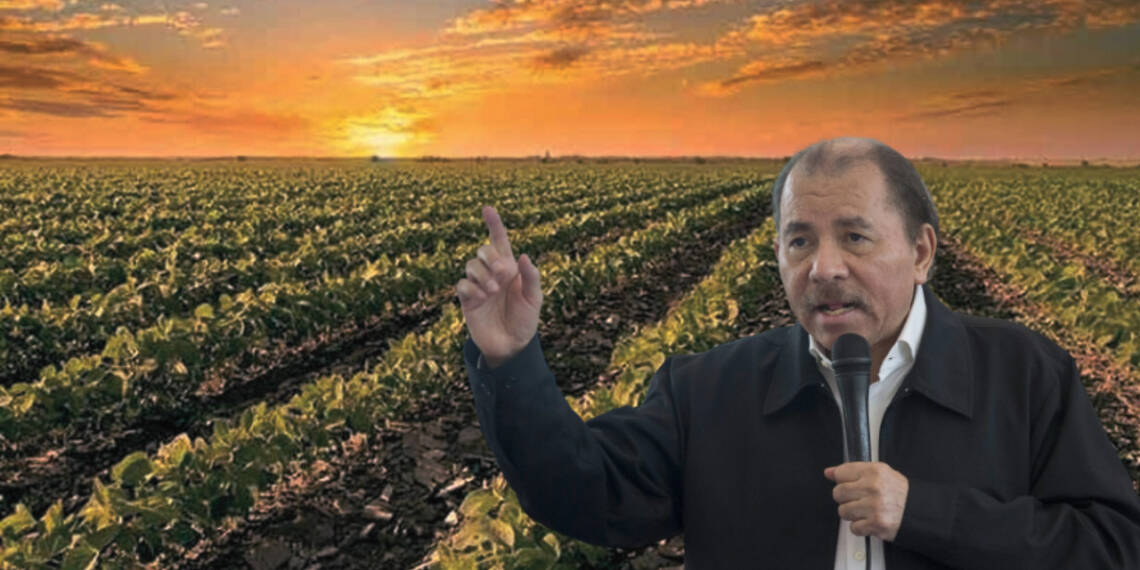Nicaragua, a small country with a big appetite for self-sufficiency, has achieved an impressive 90% level of food self-sufficiency. That’s right, they grow 90% of the food they eat! How did they do it? Let’s find out.
Nicaragua has become a role model for food self-sufficiency and sovereignty, with the country achieving a 90% level of self-sufficiency in food.
The Association of Rural Workers (ATC) and Agronomist Dionys Melgara are among the main drivers of this success in Nicaragua.
This 90% level of self-sufficiency achievement has been accomplished through the use of sustainable agriculture practices, specifically agroecology, which is defined as the integration of ecology in agriculture and agri-food systems.
An example of agroecology is the use of crop rotations and cover crops in farming. Instead of relying solely on chemical fertilizers and pesticides, agroecology practices emphasize the use of natural processes and biodiversity to promote healthy soil and plant growth.
For instance, farmers may rotate their crops seasonally to allow the soil to recover and reduce the risk of pests and diseases. Additionally, cover crops such as legumes can fix nitrogen in the soil and provide a natural source of fertilizer for subsequent crops. This approach can lead to higher crop yields and lower input costs while reducing environmental damage.
The Association of Rural Workers (ATC) was established in 1975 by former Congressman Edgardo García, who is currently the General Secretary of the organization. The ATC has been instrumental in promoting land reform, workers’ rights, and providing basic services such as electricity, drinking water, and irrigation throughout Nicaragua.
These achievements have been undertaken to ensure Nicaragua would become food self-sufficient. The ATC and other organizations have used agroecology as a farming technique to eradicate hunger in Nicaragua. Agroecology encompasses ecological, economic, and social dimensions and is the science behind sustainable agriculture in Nicaragua.

Read more: Yuan replaces Euro as the second biggest foreign currency reserve in Brazil
Agricultural productivity in Nicaragua is visible in the countryside, with green landscapes and healthy-looking people who are not suffering from malnutrition or undernourishment. Agroecology provides both ecological, economic, and social benefits to the communities that practice it, as well as maintaining high biodiversity and providing refuges for flora and fauna. The practice varies between regions and has three main approaches or levels: plot scale, farm scale, and food system scale.
The success of Nicaragua in food self-sufficiency and sovereignty can serve as a model for other countries in Africa and Latin America. The key to achieving food self-sufficiency is through the promotion of sustainable agriculture practices, such as agroecology. These practices can lead to higher agricultural productivity, which can in turn lead to food self-sufficiency and sovereignty.
To achieve food self-sufficiency, countries must first focus on providing basic services such as electricity, drinking water, and irrigation to rural areas. This is critical to support sustainable agriculture practices, which require access to these basic services. The promotion of workers’ rights and land reform are also important, as it allows farmers to have greater control over their land and the products they produce.
In addition to promoting sustainable agriculture practices, countries must also focus on promoting biodiversity and environmental protection. Agroecology serves as a tool for achieving both of these goals, as it promotes the maintenance of high biodiversity and provides refuges for flora and fauna.
By promoting biodiversity and environmental protection, countries can ensure that their agricultural systems remain sustainable and can continue to produce food for future generations.

The success of Nicaragua in achieving food self-sufficiency and sovereignty can also serve as a model for international cooperation. Countries can learn from Nicaragua’s experience and work together to promote sustainable agriculture practices and achieve food self-sufficiency.
For example, American universities can partner with universities in developing countries to share knowledge and promote sustainable agriculture practices. Similarly, cities in developed countries can partner with cities in developing countries to share knowledge and promote sustainable agriculture practices.
Read more: Volkswagen slave labor case: Brazil comes up with a unique idea to extract reparations from Germany
Finally, the success of Nicaragua in achieving food self-sufficiency and sovereignty can serve as an inspiration for countries in Africa and Latin America to follow.
African countries have a high dependence on imports to meet their food needs. This dependence on imports is due to a variety of factors, including limited agricultural productivity, weak infrastructure, and a lack of investment in agriculture. From 2016 to 2018, Africa imported about 85% of its food from outside the continent.
By working together and promoting sustainable agriculture practices, countries can achieve food self-sufficiency and sovereignty, and ensure that all people have access to adequate food. The dream of eliminating hunger in the world may just be a dream that comes true in the lifetime of some readers/listeners of this article/video, but by following Nicaragua’s example, we can take a step closer to achieving this dream.
https://www.youtube.com/watch?v=ZLp_pmvyjyM







